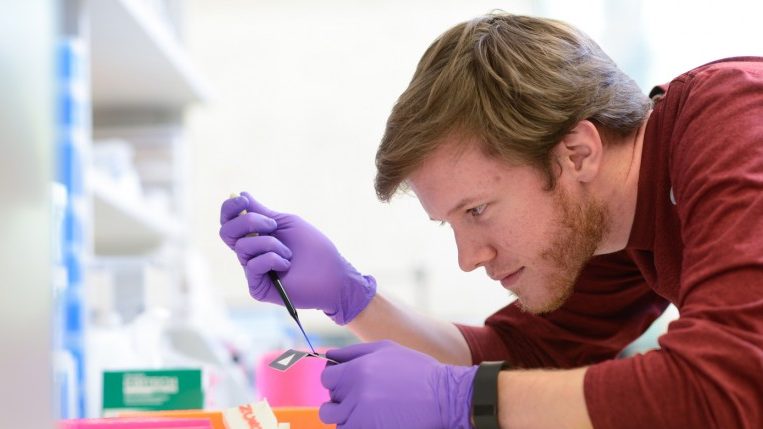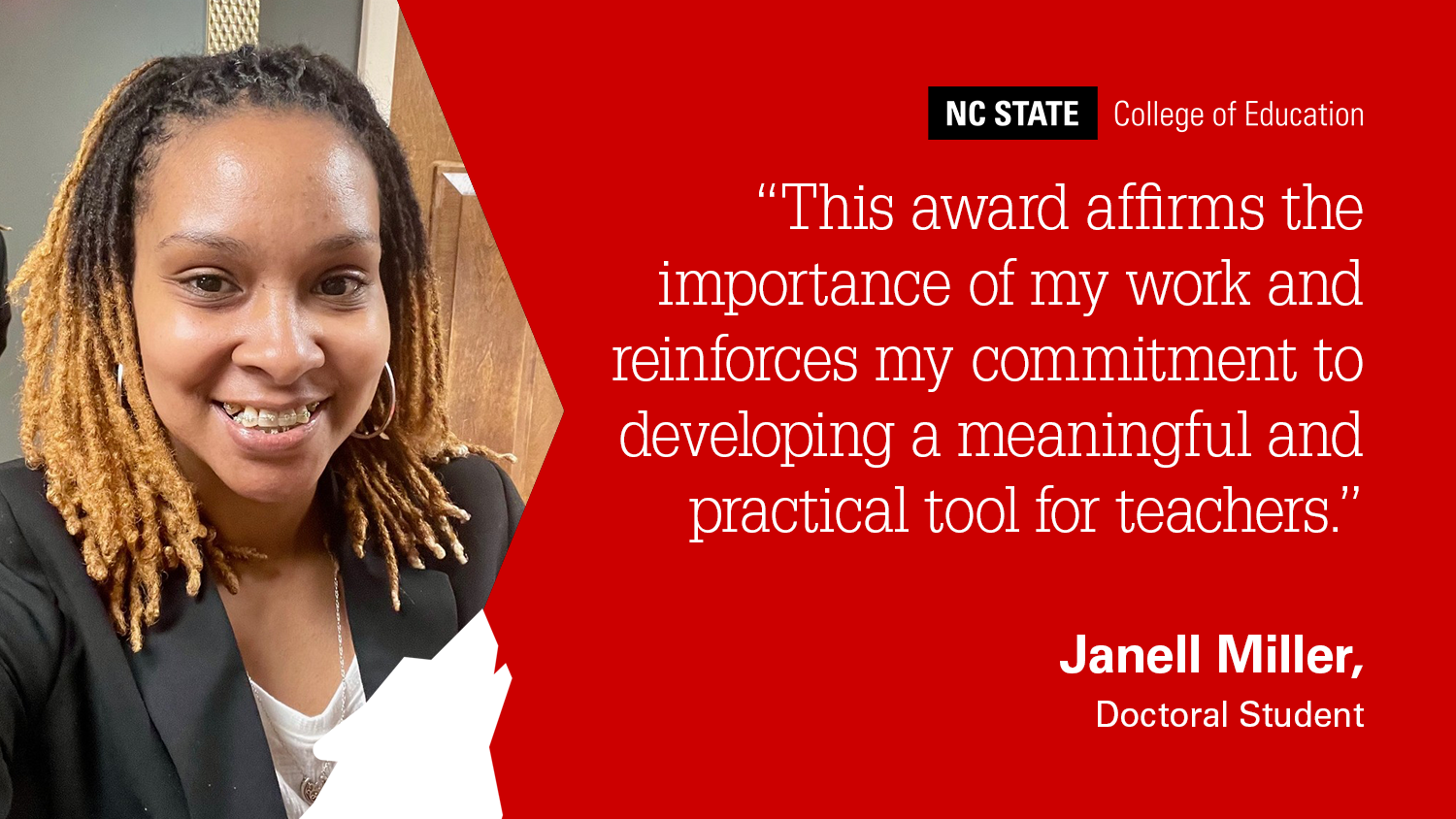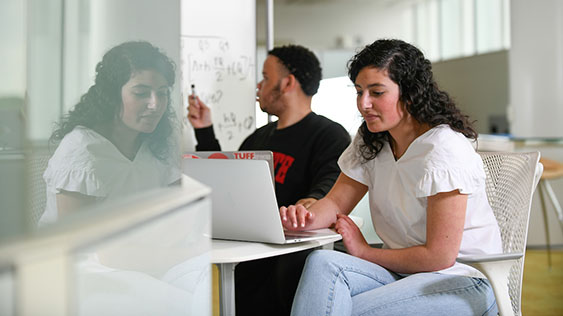Workshop Teaches the Art of Science Communication
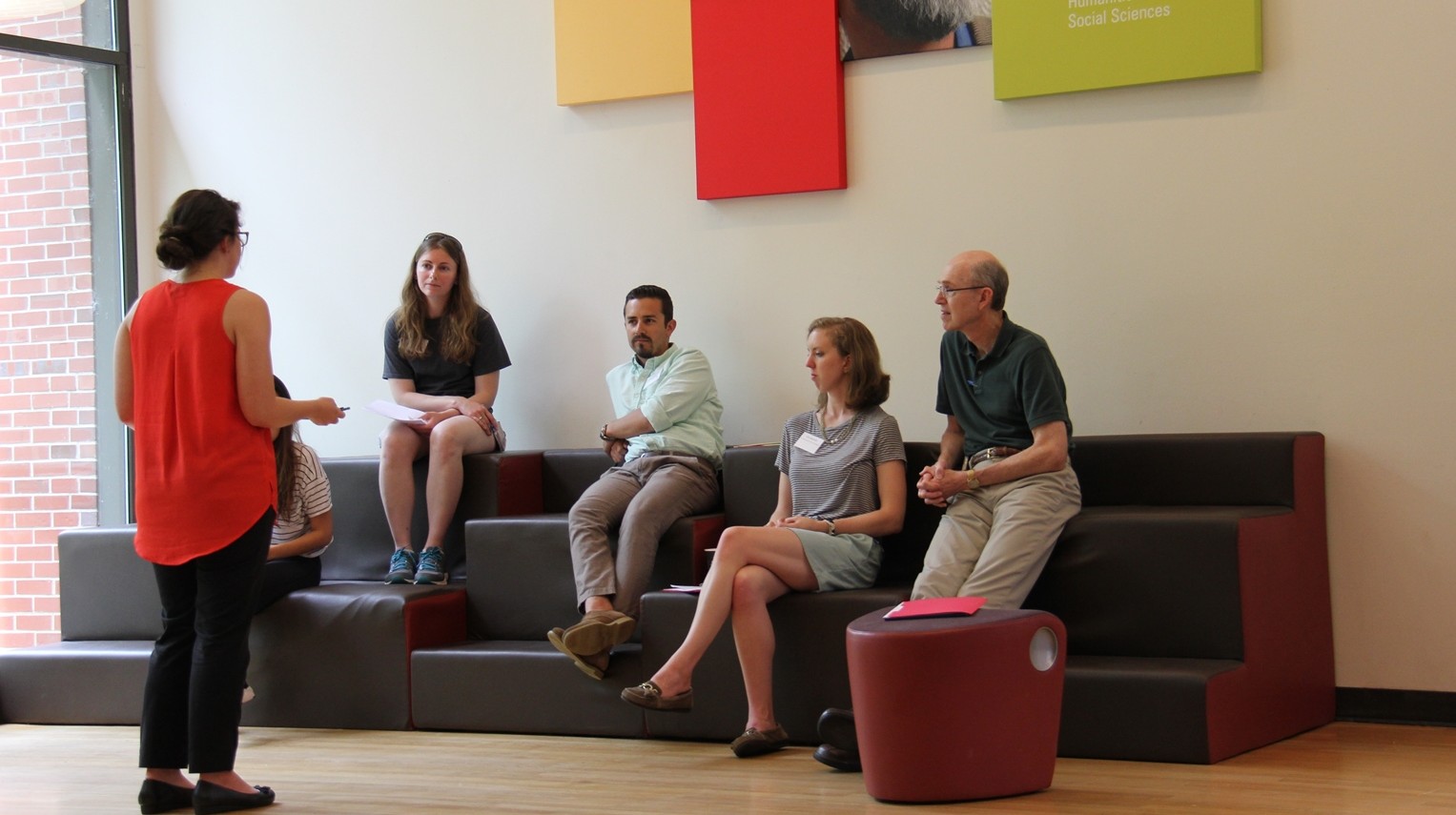
What do improvisation and science communication have in common? Just ask 20 graduate students and postdocs who recently participated in the Graduate School’s day-long science communication workshop, which included everything from improv exercises by ARTS NC State’s Amy Sawyers to media relations training from NC State News Services.
At universities and other places where scientists work there is a growing interest in how to communicate science to general audiences. Dr. Meagan Kittle Autry of the Graduate School, who organized the workshop, and Dr. Meredith Welch-Devine, University of Georgia, a guest presenter, have both participated in Stony Brook University’s Alan Alda Center for Communicating Science Summer Institute.
“There has never been a greater need for scientists and engineers to be effective communicators,” Kittle Autry said. “Our participants had the opportunity to work on some of the most critical employability skills they need in their careers.”
The goal of the four-day Alda Institute is to help scientists communicate more effectively with the public, using Alan Alda’s training program that includes improvisational exercises and message distilling to help scientists improve their connection with audiences, their listening skills and their ability to read non-verbal cues.
Welch-Devine opened the workshop by getting the students to consider their audience when crafting a message about their scientific research. She encouraged students to distill their message to its essence, make it clear, hook their audience and reel them in. She also talked about how to use social media to communicate science and reach news media.
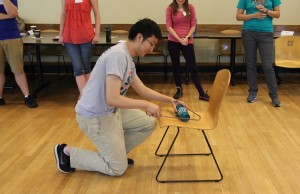
Student groups had the opportunity to apply these concepts by working with a faculty member on sharing their research with a general audience and another audience chosen at random. Over lunch, Dr. Clint Penick, a postdoctoral scholar with NC State’s Your Wild Life team, talked about his experience promoting his research on ants and bees with news media. Recently, Penick’s research on what urban bees like to eat was shared widely by news media.
Amy Sawyers of ARTS NC State led the students in improv exercises, designed to get students to approach familiar things in a new way and to step outside their comfort zone. She had them use three objects – coat hanger, chair and plastic cup – in ways they were not normally used. In another exercise, students had to greet each other, then continue a brief, impromptu conversation. One participant saw the clear value of improv for communication, remarking: “I think that if more scientists were to participate in such activities, they would be able to connect with their audiences on a level that is more conducive to effective communication of complex ideas.”
Mick Kulikowski and D’Lyn Ford of University News Services talked to students about how to approach an interview with news media. Students were surprised to learn that the university’s news writers are interested in talking with graduate students about their research.
Other news articles articles about Clint Penick’s research:
Study argues “winner-winner” behavior may shape animal hierarchies
- Categories:
